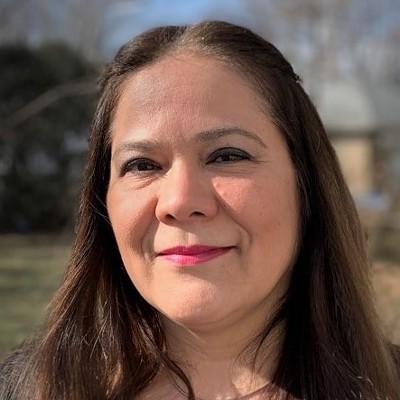Some of the core beliefs that have inspired the work of the
Springfield Immigrant Advocacy Network center are recognizing the intrinsic
dignity of all peoples as well as the understanding that migrants, immigrants,
and refugees are like us - people trying to lead families to safety and
survival and to potentially call the communities in which they arrive home. The
ultimate goals for immigrant and refugees include being able to rebuild
families, become self-sufficient, earn a living and see children and loved ones
thrive and contribute to the new place they can call their own. True
integration happens where the ideas and feelings of belonging and being home
may become a reality. After arduous, dangerous and often impossible journeys,
it is in community where one of the most important acts and expressions of love
must happen: healing.
These central beliefs, accompanied by aspirations and
dreams, require community support and a praxis rooted in anti-racism education
to materialize. At SIAN, we believe that cities, advocates, friends and
neighbors are all capable of designing and implementing equitable systems and
programs to support new families. Our volunteers’ efforts have expanded over eight
years to include advocacy and direct service.
The pandemic saw SIAN launch its Healthy Food Delivery
project which delivers fresh foods, sources of protein, diapers and other
essentials to 60 households totaling more than 350 people in Springfield every
other Sunday. While doing truly necessary, and at times incredibly difficult
organizing with no money of its own, SIAN’s grassroots efforts proved vital to
the survival of children and parents in our city. For a new nonprofit run
solely by volunteers, it was an enormous challenge. Generous donors and friends
have helped this Sunday delivery to continue for four years now. SIAN families,
not all immigrants or refugees but also people living at the margins and unable
to make a living during the COVID-19 shelter-in-place order, have little by
little transitioned to a place where they can work if transportation and child care
is affordable and available.
The past four years have also been devoted to building
community, educating our neighbors, advocating for all peoples sharing spaces
at the margins, and equitable, democratic organizing. We believe that all of
these are key to dismantling systems and methodologies that, while intending to
do good, otherize and alienate historically-excluded communities. At SIAN, we
believe that good intentions should never cause harm to those we serve.
We recognize the reality that much anti-immigrant sentiment
now and throughout history is borne of racism. We see how existing populations
whose needs have long been ignored are being pitted against newer arrivals by
the powers that continue to deny the basic needs and humanity of both. Thus,
continuing our work on anti-racism advocacy is as important as housing,
protecting and feeding the most vulnerable.
Armed conflicts, economic and social turmoil, environmental
disasters and polarization of ideas affect all of our views on immigrants and
refugees. SIAN’s work doesn’t exist in a vacuum. This is why when we see the
rise of xenophobia and racism, we must all identify politically manufactured
crises and respond to the challenge.
More than 250 years ago, leaders such as Benjamin Franklin
viewed immigration as an “us versus them” situation. Xenophobia aligned well
with the ideas of scarcity, fear and danger.
Franklin was alarmed in 1775 when “swarthy” foreigners were
flooding the colonies with strange ways, “disagreeableness, and dissonant
manners.” The new arrivals, Franklin stated, could “never adopt our language or
customs any more than they can acquire our complexion”. He did not mind small
numbers of these foreigners coming into the country, after all, they had a few
virtues; they worked hard; they were frugal, and he conceded, “they contributed
greatly to the improvement of our county.” Yet, he continued to ask, Why should
Pennsylvania, founded by the English, be a colony of Aliens? German
immigration, he passionately concluded, was a danger that must be checked. (America
for Americans, a History of Xenophobia in the United States, Erika Lee,
2021).
In a welcoming state like Illinois, we can invest in efforts
to train ourselves to do immigrant advocacy the right way. SIAN was just
awarded a Healing Illinois grant that will help us respond to the need to
provide expert, trauma-informed and immigrant-centered anti-racism training for
advocates, leaders and organizers to deliver Know Your Rights workshops to
families and to organize Healing and Resilient Conversation opportunities where
communities will gather to talk with immigrants and refugees to learn from
their stories, journeys, cultures and contributions.
We are deeply grateful to IDHS, the Field Foundation and
United Way for this opportunity.
Verónica Espina is the founder and president of the Springfield
Immigrant Advocacy Network.
















